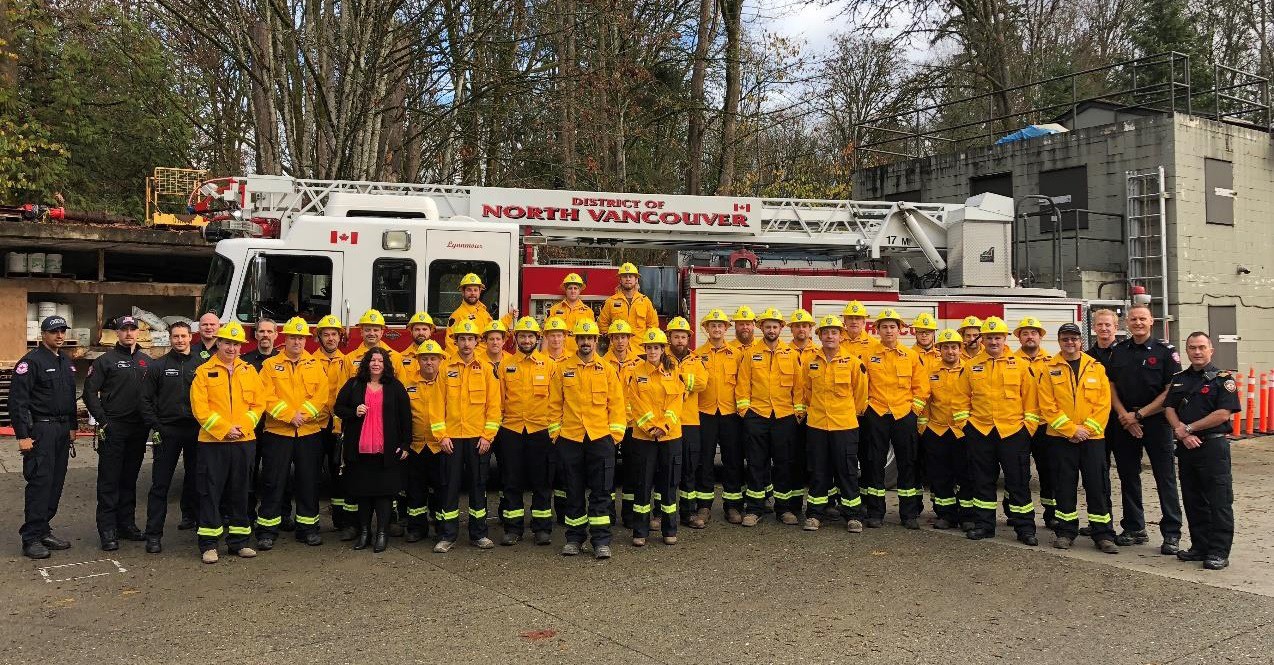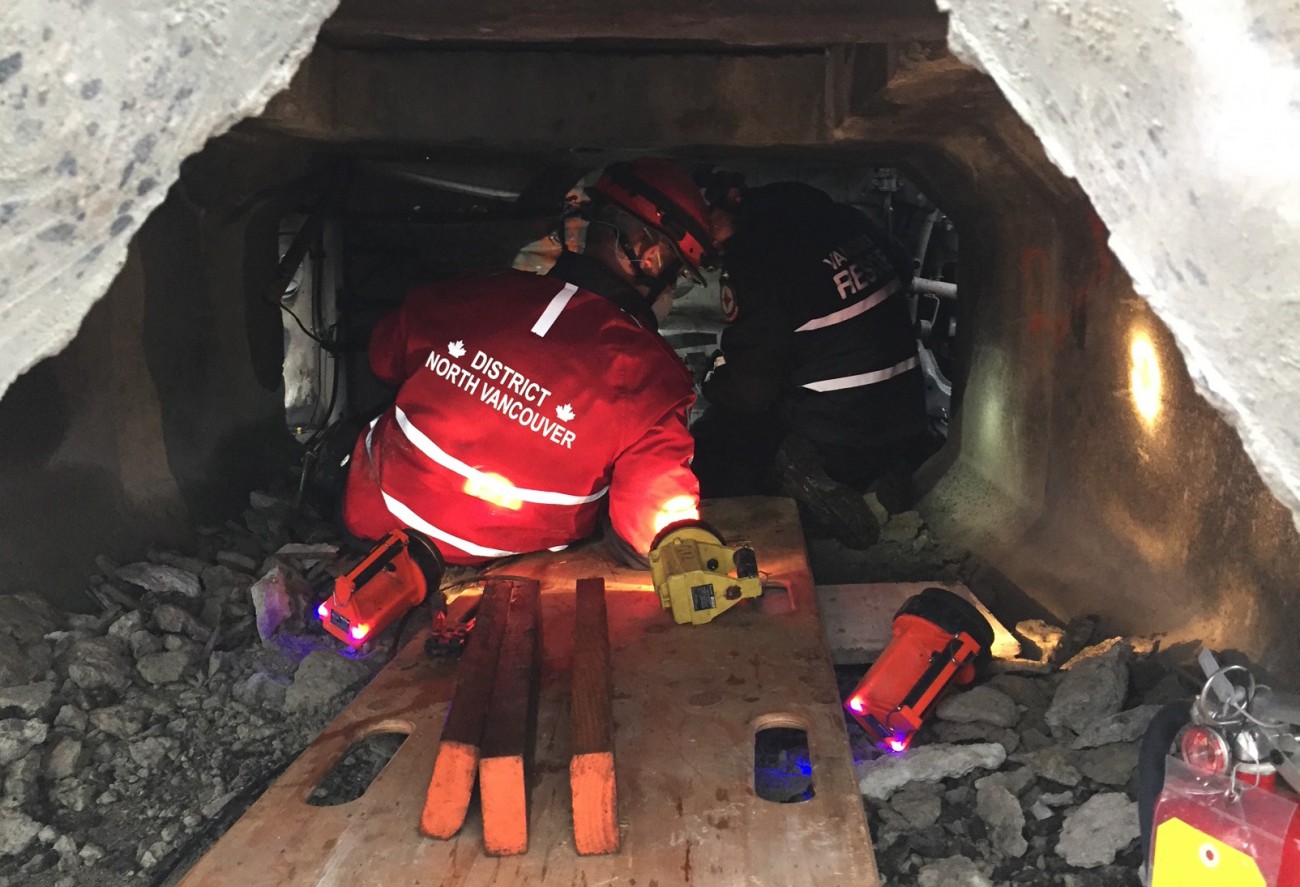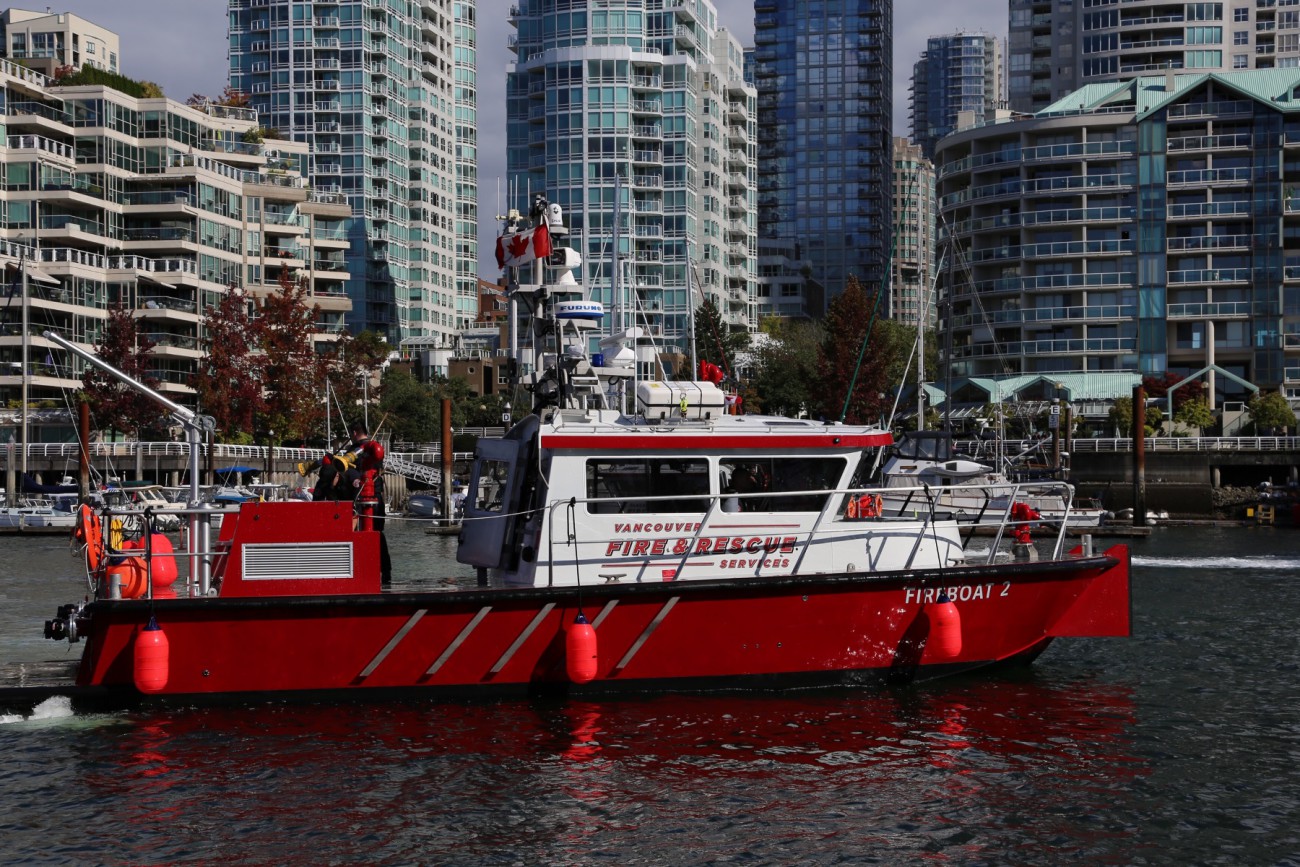Planning for Emergencies
Helping prepare for, respond to, and recover from major North Shore wide emergencies is a significant focus of our command staff.
From developing a team to help us strengthen our response to local natural hazards/emergencies and facilitate speedy community recovery, to participating in rigorous emergency preparedness exercises designed to recreate real-life emergencies, we significantly increased our capacity in 2018 to deal with major emergencies.
New 35-Member Extended Operations Unit

As part of our efforts to strengthen response to local naturally occurring emergencies, to increase community resiliency and facilitate speedy recovery from a natural disaster, we created a new Extended Operations Unit (EOU) in 2018.
Consisting of District of North Vancouver employees — many of whom already have relevant skills and experience from their 'day' jobs (arborists, heavy equipment operators, and so on) — the 35-member team will be activated to help support the Fire and Rescue team during earthquakes, landslides, floods, wildfires, and other natural disasters.
During large or significant naturally occurring emergency this group of trained staff will augment the capacity of Fire and Rescue, allowing us to focus primarily on incident mitigation.
Ongoing training opportunities and exercises will be provided to enhance the EOU's ability.
Major Emergency Operations Plan (MEOP)
We are part of a tri-municipal initiative to better respond to emergencies on the North Shore.
As part of this initiative, we have created the Tri-Municipal Major Emergency Operations Plan (MEOP), which is reviewed and tested annually in field exercises that replicate real emergency scenarios.
In 2018, 40 staff and 14 pieces of apparatus were involved in the test, which involved crews going to in the field during a simulated earthquake to review the structural integrity of District bridges, roadways, and other infrastructure, and report back on their findings.
Urban Search and Rescue

Urban Search and Rescue provides critical resources and a specially trained task force of personnel with medical, fire suppression, emergency response, search and rescue, and engineering backgrounds.
These multidisciplinary teams deploy with trained dogs, electronic search equipment, and heavy construction equipment, to remove debris and help extract people trapped in major structural collapses during naturally occurring emergencies such as earthquakes.
We have built a strong working relationship with Canada Task Force-1 (CANTF-1), the only internationally deployable Heavy Urban Search and Rescue Team on Canada’s west coast.
Our DNVFRS personnel regularly attend monthly training sessions alongside CANTF-1 members, which enhances their level of expertise and builds upon our interoperability efforts.
Working with our two North Shore fire service partners, we continue long-term planning that will see an integrated Medium Urban Search and Rescue Team active on the North Shore.
Marine Firefighting

We, alongside our District of West Vancouver and City of North Vancouver partners, have entered into an operational agreement with Vancouver Fire & Rescue Services for fire boat response.
This agreement between the four municipalities enables robust marine firefighting capacities with two state-of-the-art fire boats based out of Coal Harbour and False Creek.
This relationship also results in ongoing training sessions among personnel of all four agencies, which supports a high level of operational readiness to emergencies that could occur along the waterfront.
In 2019, all four Fire Departments will begin participating in a two-year initiative to increase the level of training in marine firefighting for land-based fire fighters.
